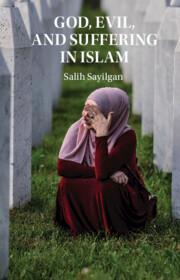‘With a humble, compelling irenic voice Salih Sayilgan introduces Islamic teachings in conversation with other faith traditions and individuals of secular sensibilities pondering the seemingly imponderable suffering attendant to moral and natural evil. His is a magisterial voice modulated by a tender humanity.’
Paul Mendes-Flohr - The Hebrew University of Jerusalem, and the University of Chicago
‘Why is there pain and suffering in the world? Do humans have free will or are they predestined? In addressing these ultimate questions that humanity continues to ask, Sayilgan offers a perspective that is scholarly and engaging. The book provides a critical analysis of theological and practical dimensions of the problem of evil and suffering in Islam.’
Zainab Alwani - Howard University
‘Sayilgan’s valuable study of the Islamic understanding of evil and suffering fills a gap in English-language resources. His study blends classical sources with contemporary issues. This well-informed book is composed with an eye for the newcomer to its topic, making it ideal for the classroom.’
Michael Birkel - Earlham College
‘Grounded in real-life case studies, particularly from the lives of Muslims in the American context, this book offers practical insights and relatable narratives. Whether you are a scholar of Islamic theology, a seeker of answers, or simply curious about the human experience of suffering, this book is an invaluable resource.’
Alparslan Acikgenc - Uskudar University
‘For people of faith, turning to one’s own faith tradition is a common starting place to seek answers to universal questions about the nature of God and of God’s role in relationship to evil and suffering. In his new book, Salih Sayilgan, provides his readers - particularly those from a non-Muslim background - with a concise summary of Islam’s perspective. In addition, the author offers an interfaith view, placing the Islamic viewpoint within a broader cultural and religious context to enrich their search.’
Barbara P. Early
Source: Journal of Religion & Spirituality in Social Work: Social Thought
’Recommended.’
G. M. Smith
Source: Choice


